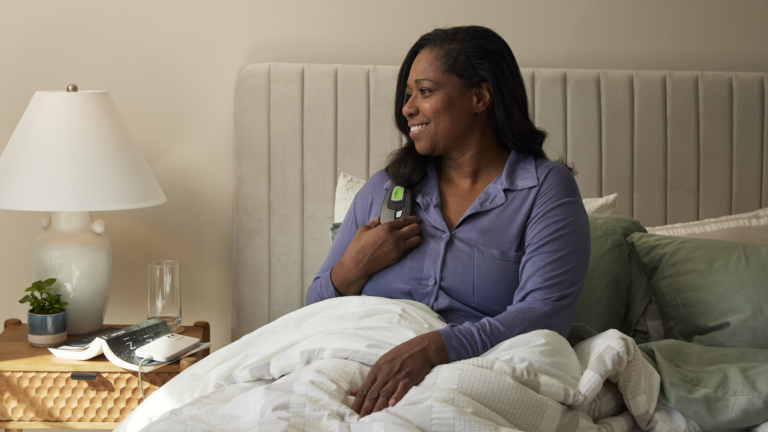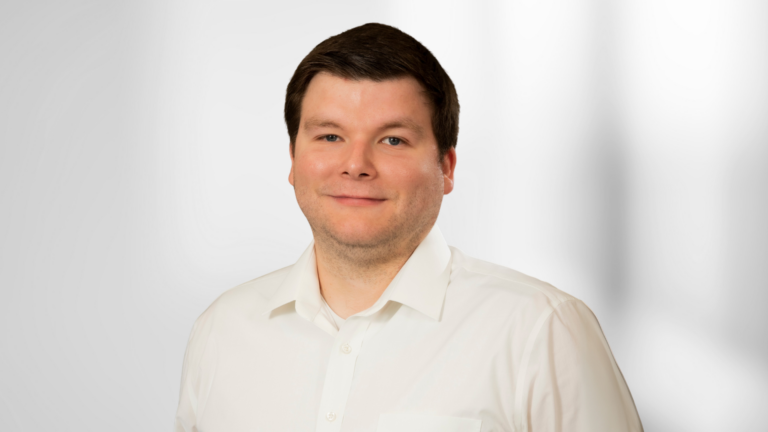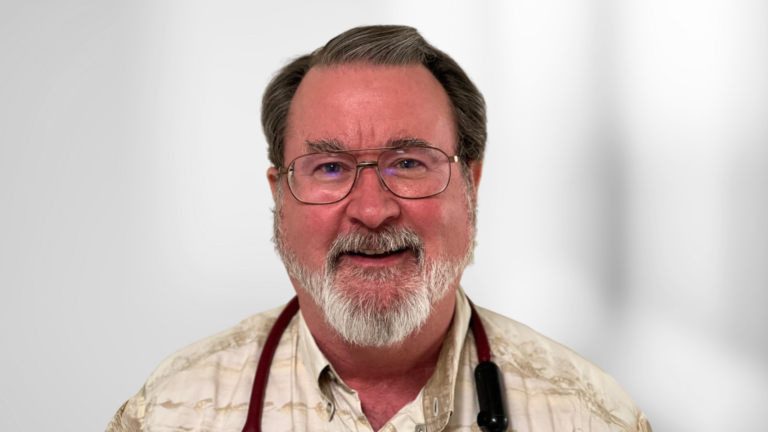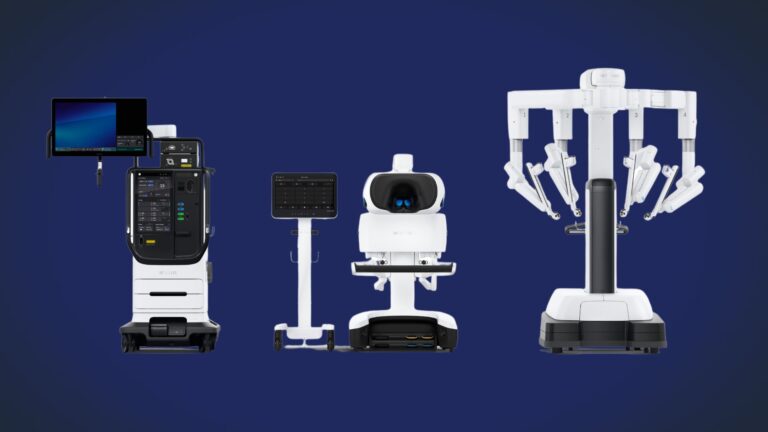An acquired brain injury (ABI) occurs when a sudden, external physical assault, such as a car accident, damages the brain. It is one of the most common causes of disability and death in adults. The severity of a brain injury can range from a mild concussion to a coma or even death. Acquired brain injuries are also commonly referred to as traumatic brain injuries (TBI).
Non-traumatic brain injuries are caused by internal factors such as cancer, toxicity or a lack of oxygen to the brain.
The Brain Injury Program at Baptist Health rehabilitation is designed for individuals experiencing a range of issues as a result of an injury to their brain. Some issues may include coma, movement and sensory impairment, communication deficits, memory and cognitive deficits, swallowing problems, visual impairment, behavioral changes, seizures and confusion. Our comprehensive services include rehabilitation nursing, care coordination, physical therapy, occupational therapy, speech-language pathology, neuropsychology, respiratory therapy, dietary counseling, pharmacy, therapeutic recreation and driver rehabilitation instruction. Our comprehensive team works together with the patient and their family with the goal of minimizing the disability and helping the patient achieve the highest level of independence while assisting the patient’s family as they deal with the effects of the injury.
Treatment
Baptist Health Rehabilitation strives to provide a smooth transition from inpatient rehabilitation to life at home, work and the community. Patients and their families will receive educational instruction related to the disease process, equipment needs, community resources and medications in order to help facilitate the return to a functional lifestyle. Individualized family training with members of the treatment team may be scheduled if the patient is likely to require assistance with mobility, self-care, communication and safety after discharge. Some patients may continue therapy through home health or outpatient services.
Speech, Language & Cognitive Training
When caring for a patient with a brain injury, the term “cognition” is frequently used. Cognition simply means “understanding” or “knowing.” Our team works together to improve the patient’s cognitive skills, including:
- Attention – being alert and aware.
- Selective Attention – being able to tune out distractions and background noise.
- Discrimination – knowing how items are the same or different.
- Sequencing – putting thoughts and activities in their proper order.
- Memory – being able to recall events, names, etc., over short and long periods of time.
- Categorization – being able to sort information correctly.
- Thought Organization – being able to add newly-learned information to old information.
- Reasoning, Problem Solving and Judgment – being able to think through and make decisions in a difficult or abstract situation.
Mobility Training
The mobility options for an individual affected by a brain injury may depend, to a great extent, on the amount of physical impairment resulting from damage to the brain. The impairment may range from slight disturbances in balance and coordination to a major loss of movement control.
Depending on the individual’s physical limitations, the physical and occupational therapists will provide training in:
- Transfers
Patients are shown how to safely move from the wheelchair to the car, bed, furniture, toilet and tub. - Wheelchair Mobility
Patients are taught to negotiate curbs, ramps and various types of surfaces in standard wheelchairs or power drive chairs. - Walking
Walking training is practiced on a variety of floor surfaces, ramps and stairs using different types of canes, walkers, splints and braces, as necessary. Walking overhead lifts, unweighting systems and special treadmills may be used to enhance walking training.
The physical therapist will assist in arranging for any necessary mobility devices (cane, wheelchair, tub bench, etc.) prior to discharge.
Robot-Assisted Walking Therapy
The robot-assisted walking device (called a Lokomat) at Baptist Health Rehabilitation Institute is designed to simulate normal walking. With individuals who have sustained an injury or illness that has severely limited their ability to walk, it is believed that the repetitive walking pattern helps the brain and spinal cord work together to re-route signals that have been interrupted. The use of the device may also help strengthen muscles, improve circulation and increase bone density. An individual using the device is supported by a suspension harness while walking on a treadmill. A robot attached by straps to the outside of the legs, moves the legs in a natural walking pattern. A computer controls the pace of walking and measures the patient’s effort and degree of participation.
ArmeoSpring
The use of ArmeoSpring at Baptist Health Rehabilitation Institute is supporting the recovery of arm and hand function through self-initiated repetitive arm and hand therapy in an extensive 3D workspace.
By providing arm weight support, the ArmeoSpring enables individuals to use any remaining motor functions and to achieve improved number of reach and grasp movements based on specific therapy goals.
As all activity during the training is based on the patient’s own movements, this repetitive training leads to better, faster results and improved long-term outcomes.
The ergonomic and adjustable exoskeleton of the ArmeoSpring embraces the whole arm, from shoulder to hand, and counterbalances the weight of the patient’s arm.
Built-in sensors record the active movements and all joint angles during the therapy session.
An extensive library of motivating game-like Augmented Performance Feedback exercises has been designed to train core movement patterns that are commonly used in activities of daily living.
Immediate performance feedback motivates patients and helps to improve their motor abilities, leading to more independence in daily routine and therefore better quality of life.
Electrical Stimulation Technology
The Bioness H200 is a state-of-the-art neuroprosthetic and rehabilitation system designed to increase functional use of the hand while minimizing impairments and complications associated with central nervous system injuries such as stroke, brain injury and spinal cord injury. The device is worn on the forearm and, utilizing computer controlled electrical stimulation, is designed to help individuals regain control and movement of the muscles in their arms and hands.
The Bioness L300 is an innovative wireless electrical stimulation system designed to assist individuals who have foot and ankle weakness or movement control problems from a central nervous system injury such as stroke or brain injury. The system stimulates the muscles lifting the foot at the proper time in the walking sequence. This may reduce the need for rigid braces and reduce walking deviations used to compensate for poor ankle control.
The Functional Electrical Stimulation bike is used for individuals who have decreased movement in their trunk and extremities due to spinal cord injuries, stroke, brain injury or multiple sclerosis.
Self-Care Training
Recovering independence in self-care is an important aspect of brain injury rehabilitation. Our patients are taught how to compensate for activities of daily living as well as how to begin to use their impaired extremities while engaging in routine tasks. Both approaches help patients gain the ability to perform care for themselves with progressively less help from others.
Basic personal care tasks such as eating, grooming, bathing, toileting and dressing may be addressed first during rehabilitation. Patients then may progress to more advanced activities of daily living such as meal preparation, household tasks, managing medications and participation in community activities.
The Baptist Health Rehabilitation gym is equipped with a home-like kitchen, bedroom and bathroom in which patients and caregivers receive training to gain the skills to function safely at home.
Baptist Health Rehabilitation Institute also has a community simulation training center within our facility called David’s Village. David’s Village includes a restaurant area, grocery store, vehicle, gas pump and a front porch entry to a home, to provide a unique opportunity for patients to practice skills needed to participate in community activities.
Neuropsychology
Neuropsychology consists of evaluation and counseling services, to assist the patient in a return to home, community, school and work. Counseling services related to the admitting diagnosis are provided to help the individual adjust to changes in their level of functioning and lifestyle. A comprehensive evaluation is conducted to test the areas of sensory motor functioning, language, orientation, attention, memory, problem-solving and decision-making skills. Also included is an evaluation of the individual’s emotional adjustment to changes in their medical condition.
Visual Impairment Training
Disturbances with eye movements and partial loss of the visual field are common with brain injuries. At Baptist Health Rehabilitation, individuals who are affected by such impairments are involved in a variety of activities to learn methods to compensate. Technology such as the Dynavision, Wii and computer-assisted interventions are available to retrain visual tracking and other visual-related skills. In addition, recommendations will be provided on how to adapt the individual’s environment to accommodate for impairments in visual function.
Specialized Feeding & Swallowing Program
Survivors of brain injury sometimes experience a swallowing problem known as dysphagia. When an individual has a swallowing impairment, there is always the danger that food or liquid will go into the lungs rather than into the stomach — this is known as aspiration, which can cause pneumonia. Meeting nutritional needs may also be more difficult with dysphagia.
Baptist Health Rehabilitation speech-language pathologists provide comprehensive services for patients with dysphagia. Treatments may include changing the patient’s head or body position when they swallow, teaching new ways to swallow or using a non-invasive device called VitalStim to stimulate and strengthen swallowing behavior.
Behavior Management
Individuals with brain injury may experience behavioral changes. As the brain heals, it is often difficult for the brain to organize information or interpret incoming stimuli. As a result, the brain’s automatic reaction is often to respond in anger. Our team is trained to assist the patient with more appropriate responses while helping to reduce the amount of incoming stimuli.
Skin Management & Pressure Relief
Complications of brain injury may include decreased muscle tone, coma and decreased movement, which can contribute to skin breakdown if not managed properly. Our team will assist patients in proper seating and wheelchair cushions to provide ideal pressure while in the wheelchair. For individuals who are unable to readjust in the chair, it is important to provide pressure relief for one minute every 15 minutes. Likewise, it is important to turn the patient in bed every two hours in order to provide pressure relief and change positions.
Referrals
Patients may be referred to Baptist Health Rehabilitation by physicians, family member, friend or self-referral. A screening examination may be conducted prior to admission. The cost of treatment is covered as with any hospitalization by Medicare, Medicaid, Workers’ compensation and private insurance carriers.
For additional information on how to begin the admission process or to schedule a tour, call 501-202-7011 for Little Rock, 501-681-0974 for North Little Rock or 1-888-227-8478 for Baptist Health HealthLine.
For a comprehensive overview of Baptist Health Rehabilitation’s award-winning care, download the annual report.
Support
Survivor Support Group Meeting for Brain Injury
Meets the third Wednesday of the month at 11:30 a.m. in the In-service Education room on the ground floor at Baptist Health Rehabilitation Institute.
Baptist Health also offers a Facebook Support Group for Families and Caregivers.
Other Resources for Brain Injury Support
- Brainline
Resources specifically for the patient, caregiver, professionals, veterans, and children with Brain Injury. - Brain Injury Association of America
Disability Rights Call 1-800-482-1174 - Brain Injury Information and Resources from Shepherd Center.
- TRIUMPH, 24/7 access to nurses & physicians for assistance with medical issues. Call 1-855-767-6983
For questions or more information, contact Ashley Whitten, Care Coordinator 501-202-7047.




